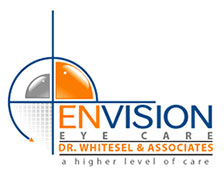Progressive lenses, sometimes called “no-line bifocals,” provide a more youthful appearance by eliminating the visible lines found in bifocal and trifocal lenses. They provide the ability to see at all distances in one seamless lens, including driving at a distance, arm’s length for computer use, and up close for reading.
Progressive lenses are the most natural form of vision correction available for patients with presbyopia, as they eliminate the “image jump” present in standard bifocal and trifocal lenses. Progressive lenses provide a smooth transition from the distance through intermediate to near vision with all the in-between corrections included.
Who Needs Progressive Lenses?
Even if you’ve never needed glasses before, presbyopia usually occurs in individuals around age 40. As we age naturally, our ability to see objects up close and the computer screen can decrease and can be blurry. Progressive lenses address separate visual needs in one lens.
How Do Progressive Lenses Work?
If you need more than one pair of glasses or prescription to do computer work or drive, progressives let you see clearly at any distance with one pair of glasses. The constant graduation of prescription in progressive lenses enables you to look up to see in the distance, look ahead to view things such as the computer in the intermediate zone, and drop your gaze downward to read, text, or perform other work comfortably up close.
With so many progressive lens designs and options available, the choices can be overwhelming without professional advice. Ask Dr. Whitesel about progressive lenses at your next visit!

